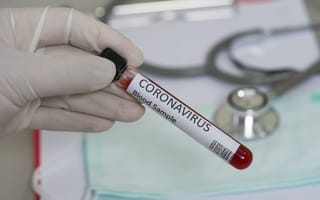
Three Boston-based organizations — Biogen, the Broad Institute of the Massachusetts Institute of Technology and Harvard University, and PartnersHealthCare — have teamed up to build a shared COVID-19 biobank. The goal is to provide scientists with a large collection of data on the virus so they can better understand it and, eventually, develop a vaccine or treatment for it.
The idea for this partnership came about when several employees at Biogen, a neuroscience research facility, were diagnosed with COVID-19. These were among the first cases in the state. Over time, it came out that the company was actually a “super-spreader” for the virus, with employees carrying it to at least six states and three countries.
After recovering, some of these employees began reaching out to partners in the hospital and biomedical community to figure out a way to contribute their own medical information to help fight against COVID-19. Now, Biogen employees who have recovered, plus their families and close contacts, will be the first volunteers to contribute to the biobank.
“The ability to collaborate directly with a cohort of local patients who were among the first in Massachusetts to contract COVID-19, and partner with leading healthcare and biomedical research institutions across Kendall Square and the Boston area, allows us to launch many critical research approaches at once,” Deborah Hung, co-director of the Broad Institute’s Infectious Disease and Microbes Program, said in a statement.
“Thanks to these patients and their close contacts, we’ll gain insights into the biology of how the disease moved through a relatively small group of the larger population, early in the local life-cycle in Massachusetts,” Hung continued. “Just as important, we’ll be able to evaluate the levels of neutralizing antibodies against SARS-CoV-2, and this may offer some options for therapies in the near term.”
The outreach and sample collection effort is being coordinated by Partners HealthCare, Massachusetts General Hospital and Brigham and Women’s Hospital. Data from the blood samples will be generated at the Broad Institute and “de-identified” or anonymized. This data will then be analyzed and tested in order to shed new light on the characteristics of the development of the virus and why some people are asymptomatic. The biobank will also store frozen samples, which, with patient consent, could be used in future research.
The data will be accessible by Biogen and other researchers around the world. However, the personal information of the volunteers will remain anonymous to everyone, including Biogen.
“The COVID-19 pandemic has had a very direct, very personal impact on our Biogen community,” Dr. Maha Radhakrishnan, Biogen’s chief medical officer, said in a statement. “We are uniquely positioned to contribute to advancing COVID-19 science in an organized and deliberate way so we can all gain a better understanding of this virus.”




